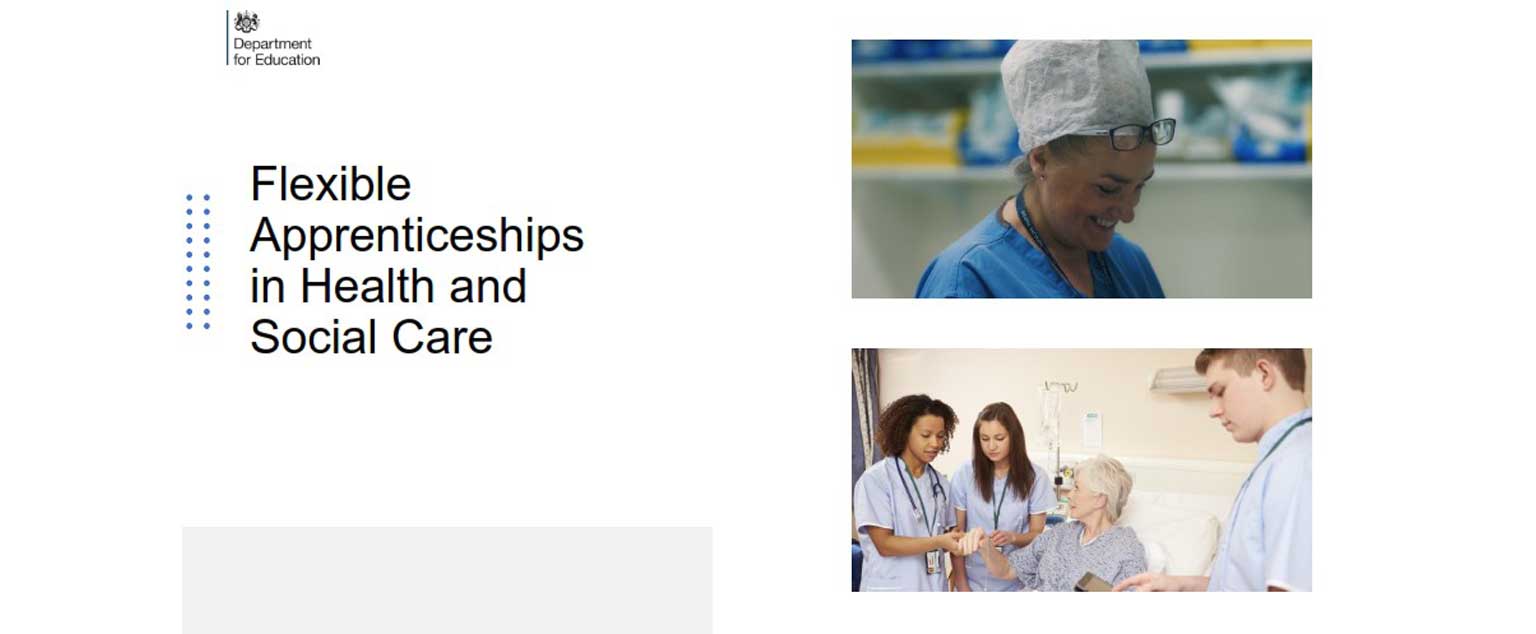
| 26 May 2021
A new manual, co-authored by employers and providers within the sector and Government, has been published by the Department for Education (DfE) this week to set out how flexibilities in apprenticeships can be used and delivered in Health and Social Care to meet the needs of employers and apprentices.
Apprenticeships have been on a transformational journey since 2012, with reforms such as the introduction of employer led standards leading the way in ensuring apprenticeships are relevant, high quality, and meet the skills needs of employers.
In 2020, the Prime Minister committed to building on this success, and making apprenticeships more flexible, to better meet the needs of employers and apprentices.
The ‘Flexible Apprenticeships in Health and Social Care’ manual, sets out:
- how the delivery of apprenticeship training can be flexed to meet employer needs; and
- how the length of an apprenticeship can be reduced where an individual has existing relevant knowledge or skills.
Some employers are already making use of apprenticeship flexibilities and are seeing the benefits of this, in workforce satisfaction, productivity, and improved value for money. This includes employers and providers who co-authored the manual alongside Government.
With our years of experience in developing and supporting healthcare apprenticeships across the UK, within both clinical and non-clinical practice, we want to encourage all employers to think creatively about how you can tailor apprenticeship training to meet your needs. That is why we are keen to endorse this useful new guide, developed in collaboration with the sector and DfE, which can help you better understand the wide range of delivery models available that enable you to work with providers and apprentices to achieve the right blend of on and off-the-job training with high-quality outcomes to navigate your route to success.
Whether your best laid path is through a flexible training model, such as ‘front loading’, which can support your apprentices new to the sector to hit the ground running, or by delivering accelerated apprenticeships that recognise prior learning of your more experienced individuals, find out more with this valuable resource here today, to help you reach your full apprenticeship aspirations.
For examples of how employers are flexing off-the-job training to meet their needs, and for all of the latest apprenticeship standards available to health sector employers in England to train staff in clinical and non-clinical roles, visit Healthcare Apprenticeships Standards Online, our dedicated resource for Health Education England.
